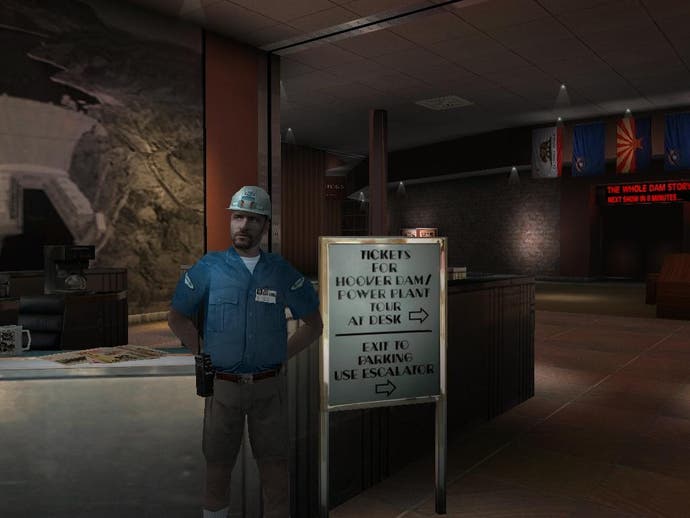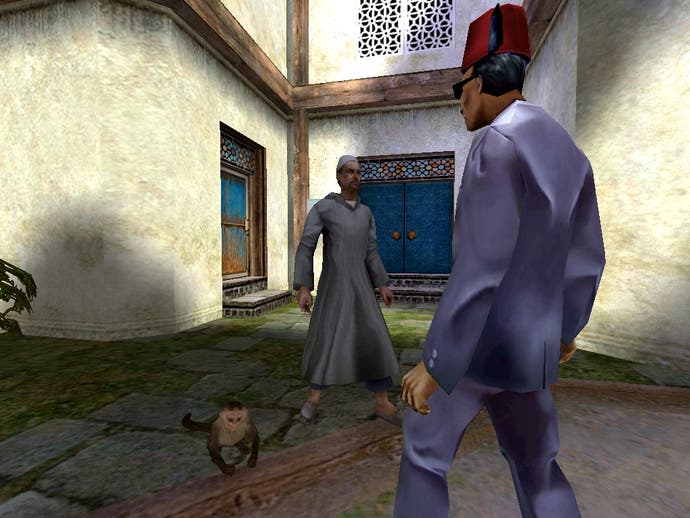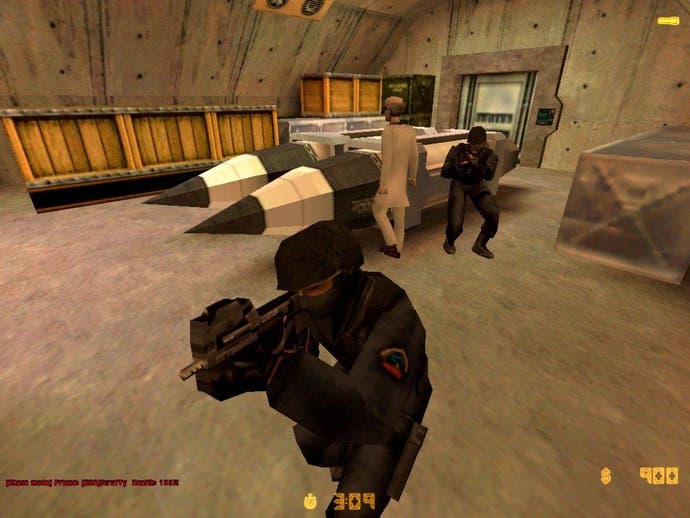Scott Miller of 3D Realms - Part One
Interview - 3D Realms co-owner Scott Miller talks about the state of the gaming industry, and of course Duke Nukem
When reviewing the seminal figures in the history of PC games, it would be hard to find anyone who has been more in the middle of the action than Scott Miller. As head of Apogee Software he is credited as inventing the episodic game demo when he originated the use of demos to sell shareware side-scrollers.
His next big coup was playing a crucial role in the creation of id Software, by enticing the company's founders to leave their jobs at Softdisk and make a go of it on their own. The story of how he did this gives an example of his creativity. Softdisk was a wholesale publisher of low-end arcade games, publishing one game a month which they sent to people who subscribed to their service. Scott noticed some promise in these games and wanted to get in touch with the developers, but Softdisk opened all the mail before it was forwarded to them so as to keep people like Scott from doing this.
They did, however, forward on comments from fans to the developer directly, so Scott wrote a number of fan letters with different names and comments, but all with the same address. One day John Romero, who had the fan letters posted above his desk, noticed that the address and phone number on all of the fan letters was the same and called the number to find out what was up. The rest, as they say, is history.

History
Apogee worked with id until the release of Doom before parting company and becoming a competitor. In keeping with the new fad of first person shooters, Apogee changed its name to 3D Realms and embarked on developing its own games. The company had early success with the sequel to one of their side-scroller franchises, Duke Nukem.
With the release of Duke Nukem 3D, 3D Realms proved themselves to be one of the premier developers in the industry as the content rich but technologically challenged game held its own against Quake. But since then 3D Realms has become better known for what they haven't released than what they did. One of their premier projects, tentatively called Prey, went through a number of development teams before finally being cancelled last year.
One of the main objects of simultaneous scorn and hope in the game press for the past couple of years has been the long anticipated Duke Nukem sequel Duke Nukem Forever, which has gone through its fair share of development woes since it was first announced four years ago. 3D Realms, weary of the drubbing that overhyped titles such as Daikatana and Trespasser have received in recent years, has held back all but a few details about the game, only saying that it will be out "when it's done". Nonetheless, Duke Nukem Forever has perennially made the list of anticipated releases for the past couple of years. This testament of anticipation shows that despite the fact that 3D Realms hasn't released a game in three years, their reputation as an innovator is still secure.

3DA
According to Scott, 2000 was a good year for the venerable first person shooter genre. "We're seeing the genre experiment and expand with games like Alice, Rune, FAKK2, Deus Ex, and No One Lives Forever. Even Daikatana introduced AI sidekicks, though later Raven's Elite Force did it better by limiting what the sidekicks could reasonably do and script-faking much of their AI. This isn't to say that these were all great games, but at least we see new ideas and gameplay being tried, and that's always good in the long run."
Scott did have some reservations about continuing to use the term "first person shooter" though, telling us that "the term FPS is now sorely outdated, because many of the games I listed are not pure shooters, nor are they first-person games. I think we should adopt a better catch-all term like '3D Action', or 3DA for short. A side-benefit of this change would be removing ourselves further from the use of the word 'shooters', which only hurts our industry's reputation."
One issue that has some observers scratching their heads is the industry's obsession with the 3DA, when other genres have come to make up the majority of the PC Data top 10. This has led many to wonder why there is a perception that 3DA is the dominant genre of PC gaming. "I think it's often perceived as the top genre because it's where the most exciting technical innovations most often occur", according to Scott. "3DA games are the most interesting to look at because they most accurately recreate the real world we live in, and in general people have a fascination with 3D graphics. But while some of the most successful games of all time have been 3DA games, like DOOM, Duke3D, Quake, Unreal and Half-Life, there have of course been many non-3D game superstars, like Diablo, Command & Conquer, Starcraft, Myst, Roller Coaster Tycoon, etc."

The Multiplayer Equation
Another major issue that developers have to deal with today is whether gamers should expect future 3DA games to have both the great single player scenarios of Half-Life and similar titles in addition to the myriad gameplay options of dedicated multiplayer games such as Quake III Arena and Unreal Tournament. Specifically, should a game like No One Lives Forever put in multiplayer support even if it's not up to the level of a multiplayer focused game and then get slammed for it, or should they go the route of Alice and ignore multiplayer options all together?
"Whenever a genre matures, two things usually happen: 1) it branches in several directions that focus on specific play styles within the genre, and 2) it borrows play elements and styles from other genres. This is what we are seeing happen with 3DA games, such as Unreal Tournament and Quake Arena which are focusing on multi-player gaming, and other games like Elite Force, Alice and No One Lives Forever, all focusing on single-player gaming."
"It's no longer easy to support both single-player and multiplayer gaming within the same game. The problem is that single-player and multiplayer have different play styles and different level design requirements (single-player levels tend to be linear, while multiplayer levels need to have many circular paths). It requires a lot of extra time by the developer to support both of these diverging play styles within the same game, so that's why we're seeing the genre split in half, with most games support either one or the other but rarely both."
From this statement we wondered what we could infer about Duke Nukem Forever. The always-diplomatic Mr. Miller left us with the following tidbit; "all I can say on this topic is that we plan to include multiplayer with several game modes. Since we are using the Unreal Tournament engine, a lot of this is already in place for us to take advantage of."

It's A Mod, Mod World
Over the past six months the big story in multiplayer gaming has been the tremendous popularity of the Half-Life mod Counter-Strike, which has more players online at any given time than all other 3DA games combined. Valve has shown that with proper support, mods can generate new sales.
"I don't think Counter-Strike re-established the importance of mods, but instead raised the importance to a new level", Scott told us. "Since Wolfenstein 3-D we've seen mods, with players hacking into the map structure, coding level editors, and making thousands of new levels, some with coherent themes. It was this hacking and proliferation of user levels that gave id the idea of making DOOM easy to modify from the start. And interestingly enough even before Wolf3D we saw people hacking into the original Duke Nukem (mid-1991) and creating editors and levels."
"Mods were born from the efforts of players from day one, and it just took us developers a few more years to catch on and begin making our games with ease-of-modification built-in. Counter-Strike is the current gold standard, but it's likely that eventually we'll see even greater, more successful mods."
Rebirth of Shareware
In Scott's June 22, 1998 .plan update he wrote: "Geoff asks, "Shareware, where are you?" The answer is not that shareware has changed, the answer is that the entire game industry has become hyper-competitive, and this makes it very tough for small, unfunded teams to surprise the world with something that stands out. It's sad, but it's the price of progress."
Given that the mod community seems to be providing the opportunity that shareware used to, but there's no financial gain, we asked Scott if publishers would have to start offering more incentives to mod authors to keep this movement going? "The short answer is 'yes', at least if we want to see high-quality mods like Counter-Strike, which I believe is funded by Valve. Valve has done the best thing possible by supporting mod makers with funding, and other developers and publishers should take notice of the results."
-
Scott Miller interview - Part Two
